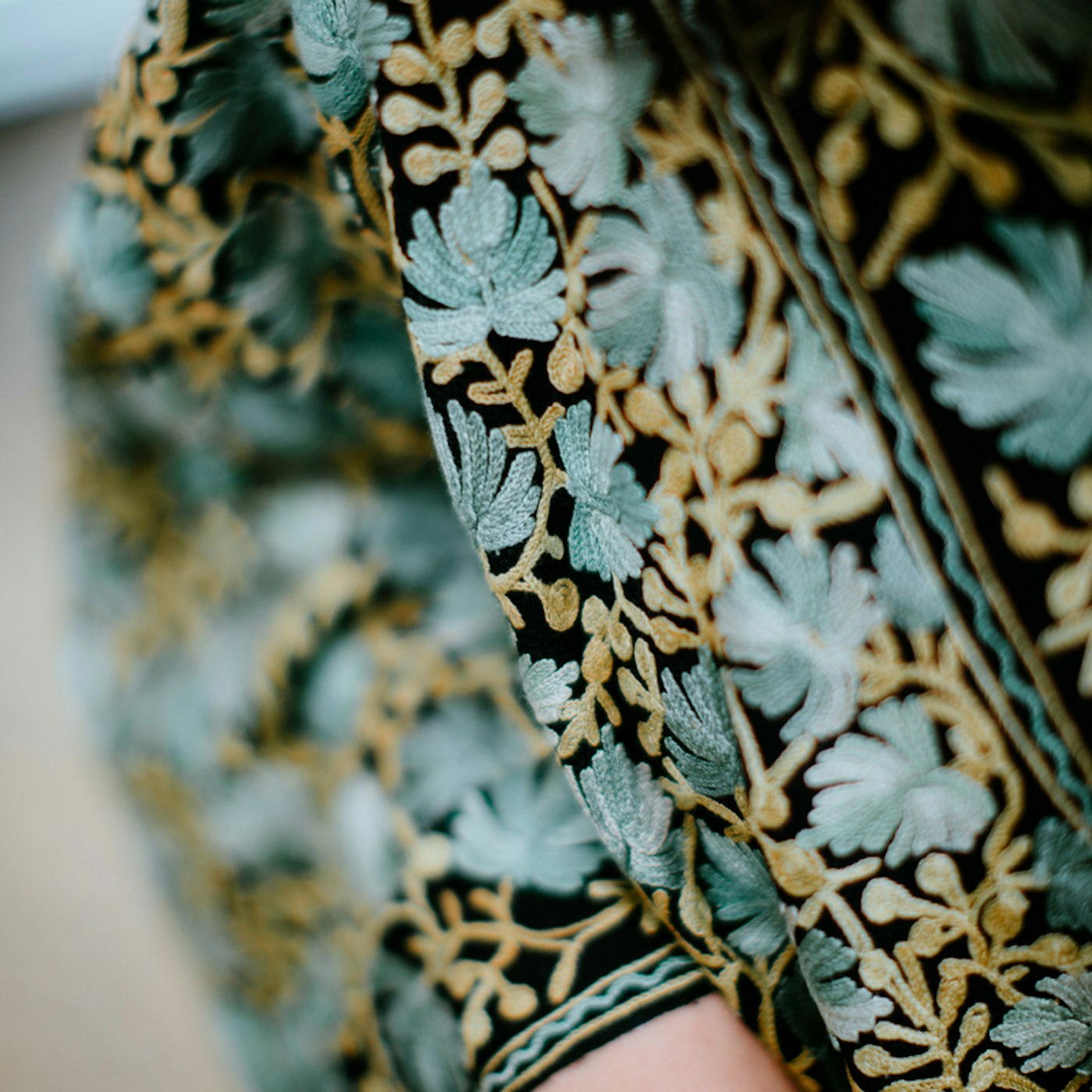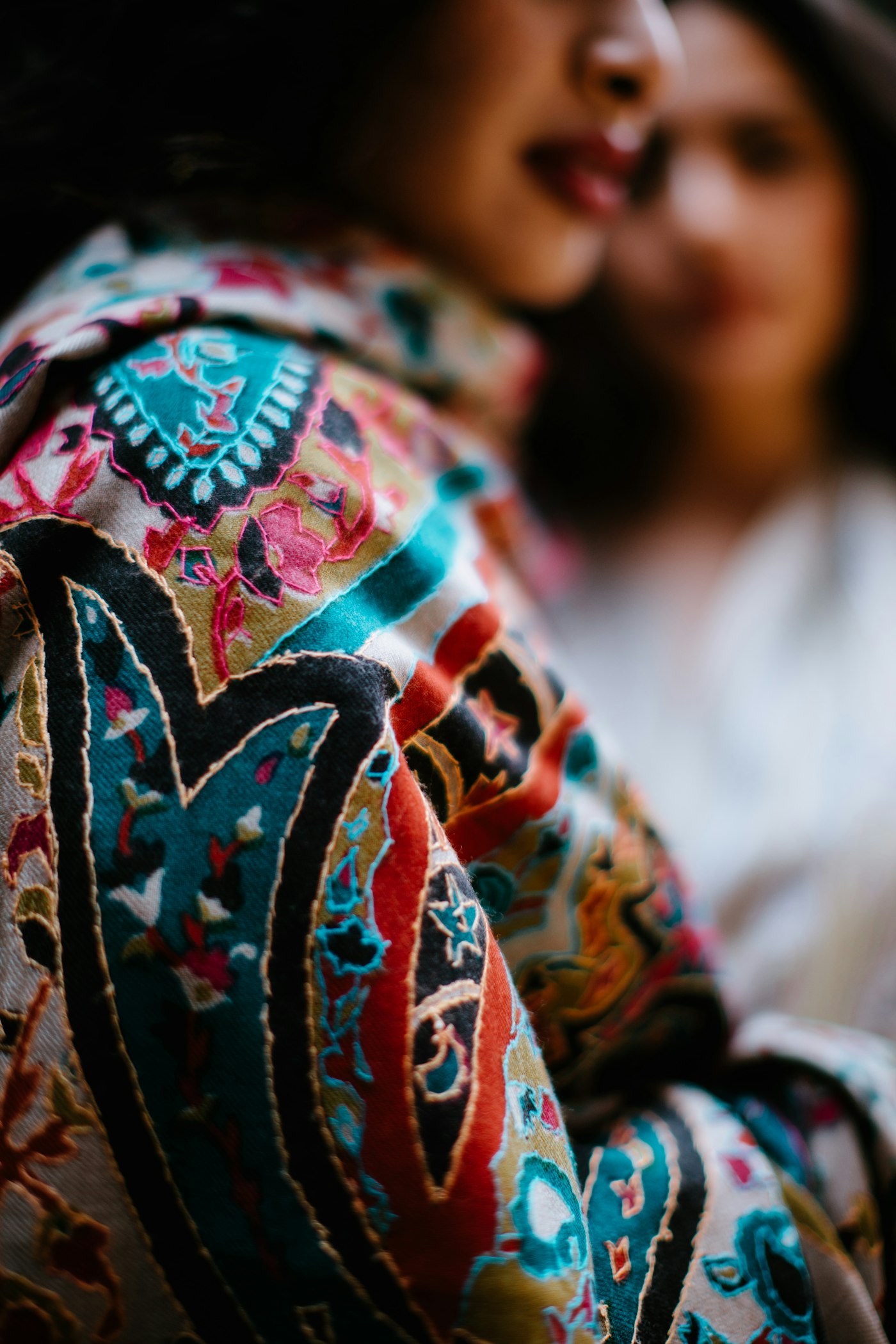Ethical Brands: Pehhchaan Pride in Heritage & Empowering Street Children
by Hanan in Culture & Lifestyle on 1st May, 2018

Rehaab Daud was born and raised in Dubai, and currently resides in London with her husband and newborn baby. She founded the company Pehhchaan in 2017 in her bid to battle forced child labour, in Pakistan, and help create sustainable solutions for consuming. I sat down with her to find out a little more about its past and future. And what we can do to battle our nafs when it comes to consuming.
1) Tell us a little about yourself?
I was born and raised in a multicultural environment in Dubai but my parents made sure to take my siblings and I back home to India and Pakistan throughout our childhood so we stay connected to our roots. Hence, all of us at home have a strong sense of pride in our heritage and everything related to the land we belong to. I moved with my husband two years ago to London and I am a new mother to an eleven-month-old girl.
2) What triggered your move into living a more conscious lifestyle?
Living a more conscious life definitely stems from my faith and teachings of Islam. Our Prophet (p.b.u.h) is an example of simplicity. From his clothes to his eating habits, everything was simple. Islam encourages us to take only whats needed and avoid excess, to share from our wealth, to be mindful of other’s financial restrictions.
How did Pehhchaan begin?
The idea to start a social enterprise dawned on me when I was helping my sister shop for her wedding. We were in Pakistan selecting unique pieces of shawls and scarves for her in-laws and to gift the guests. The quality of cloth, embroidery and craftsmanship in various parts of Pakistan and India are one of the best in the world. Pashmina made in Kashmir is unmatched and sold across the globe. I thought of picking a few pieces for the first collection and asked my mom to get me a few shawls from India as well. And that’s how it all started. ‘Pehhchaan’ means ‘identity’ in Urdu. I wanted a name for the brand which represents what it stands for – pride in one’s heritage and art.
3) Explain the creative process that lead you there?
After deciding on a name, I decided to launch Pehhchaan on Instagram before setting up an online shop (which will be up and running after Eid). I wanted to do a photoshoot in collaboration with influencers who are helping spread a positive and strong image of the Sub-Continent. And so I got in touch with Aaminah who is the Co-Founder of ‘Two Brown Girls’ and Thahmina of ‘Golden Tiffin’. Both these ladies came on board immediately after having a look at the collection and after getting to know that the business supports a social cause. I was lucky to have Jahied as the photographer for Pehhchaan’s first shoot. He understood the concept and all three of them were thorough professionals to work with.
4) Why scarves /shawls?
Although I am not much of a shopper, I have a collection of shawls bought or gifted over the years. It’s something I’ve grown up seeing my mother wear in winters with her shalwar kameez. My personal favourite, the one my mother gifted me at my wedding. The idea of starting a business related to something which has been a massive part of my wardrobe for the longest time only seemed natural.
Related
We talk ethical brands and lifestyles over on the latest episode of our podcast, ‘Amaliah Voices’
Ethical brands: Nindyaa Bed Sheets
Ethical Brands series: Nakshi Stitch combatting slavery and child labour
 5) Why should people go out and support your line?
5) Why should people go out and support your line?
Pehhchaan shawls are sourced from Pakistani and Indian artisans and 20% of the profits made from every sale go into sponsoring children’s education in Pakistan. At the moment the profits are donated to organizations who enroll street children in schools, but as the business expands, we plan on running a crowdfunding campaign to collect funds to start a training center for women and men to help them develop various skills to help create jobs, so that they don’t need to send their children to the streets to beg or work, common in the Sub-Continent, but they will have the freedom to send them to school instead.
6) What impact does our consumer choices have on people from the global south?
Buying from unethical brands responsible for modern-day slavery -is supporting slavery. We have to ask the question ‘who made my clothes’, we have to stop buying from brands which promote unrealistic and racist ideals. All this is not just polluting our environment but is negatively affecting our generation. People are more insecure and depressed than ever before.
7) Tell me a little about the women you want to help in Pakistan?
I want to be a part of the growing economy in Pakistan. Currently, there’s a boom of small businesses there and a lot of young entrepreneurs are using this opportunity to do social good. I want to partner with various artisans (men and women) who don’t have direct access to show their products to a large group of consumers. Pehhchaan aims to showcase the work done in India and Pakistan in the textile industry and in doing so, will help provide income for their families to ensure they can enrol their children in schools.
8) What is the political climate like there?
Pakistan and India both have a stable political climate except in a few areas of the country. The economy is booming in both countries with property prices rising at a rapid speed. The only hurdle I am facing at the moment is sourcing shawls from Indian Kashmir where there has been political unrest, strikes and curfews for the past few years. This has significantly affected the businesses there and I’ve seen a decline in the variety of shawls produced.
9) What about education?
Pakistan ranks very low in education. Our focus at Pehhchaan is getting children who are forced on to the streets and child labour, out of the vicious cycle and into schools. There is a lot of work that needs to be done in the education sector in Pakistan.
10) What advice would you give to someone who has a spending problem?
‘Be in this world as if you were a stranger or traveller along a path’ This hadith has so much wisdom. If only we contemplate on it’s meaning, we might be able to detach ourselves at least a bit from the material possessions of this world and not stress so much about everything which is temporary, our clothes are even more temporary due to the quality of clothes produced as a result of fast fashion which will encourage you to throw it away, and buy new ones. Detach from all things temporary, Including all our relations and life itself.
11) How would you help someone who wants to buy to fill a void?
There are two major things which have grounded me as an adult other than my upbringing. Traveling and helping others. Pack your bags with travel essentials and head out to explore a new place on this planet. And not the 5-star trip where you surround yourself with luxury on a holiday. Travel unknown paths, strike conversations with strangers, learn about their culture, religion, beliefs. You will return a little wiser than you left and will feel your soul become a little lighter. Fill that void with human experiences rather than material possessions.
12) What future do you see, if we all lived more consciously?
I see human life being valued if we took a hold of our greed and lived more consciously. I see the climate changing for the better, trees and animals being preserved. If we lived with a strong sense of responsibility towards humanity, we would be mindful of the pollution we create every day, we wouldn’t occupy land which isn’t ours, we wouldn’t see war waged for natural resources.
https://www.instagram.com/p/Bb1P0nVhRkC/?taken-by=pehhchaan
Follow and support Pehhchaans journey on Instagram.
Hanan
Hanan has a Masters in Media in the Middle East from SOAS University. Trainee of the Muslim Women in Media institute Annual Cohort at UC Davis, California. Her interests lie in ethical fashion, modern-day slavery, and when not making Youtube videos she is somewhere in between Ballet and Kickboxing. King Julian is her spirit animal.